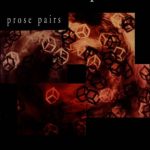I have the privilege of teaching an adult creative writing class through Scholar OLLI (Osher Lifelong Learning Institute). A good many of the participants are writing memoirs or fiction based on memoir and I often hear comments such as “That’s the way I remember it.” While I honor their intent to be true to what they remember, I also know that, in the words of the amazing poet, Stephen Dunn:
 …what we choose to say about our past becomes our past. That other past, the one we’ve lived, exists in pieces that flicker and grow dim…Every time I save, I exclude.
…what we choose to say about our past becomes our past. That other past, the one we’ve lived, exists in pieces that flicker and grow dim…Every time I save, I exclude.
(From “Memory,” in Riffs & Reciprocities: prose pairs. New York: W. W. Norton, 1998)
What is the memory we struggle to share in memoir, in fiction, be it based on memoir or on history? What part is true and what part imagined? What part is what we think is true? The answer is complex. Our early lives come to us both when we live them and, because our memories don’t appear to go back to infancy, when others (parents, older siblings) tell us what they remember. As we grow older, we have our own memories, but how much do we mis-remember? Perhaps, the “truest” part of memory is the emotion those memories evoke, however accurate or inaccurate. Similarly, when we write fiction based on memory or on history, how “real” or “true” are the “facts”?
This leads to the issue of “fictive truth.” The distance of fiction can often lead to emotions and insights we don’t experience when we are given a story that purports to be “the truth” or “fact” or “memoir” or “history.” As Stephen King wrote:
“Kids, fiction is the truth inside the lie, and the truth of this fiction is simple enough: the magic  exists.”
exists.”
Quote taken from Goodreads: https://www.goodreads.com/quotes/256247-kids-fiction-is-the-truth-inside-the-lie-and-the
Image credit: http://www.doublequotes.net/quotes/stephen-king-quotes-fiction-is-the-truth-inside-the-lie
I have often thought that psychology is best served through fiction because we can live vicariously through the lens of that distance, knowing the story isn’t “true” or “real,” thereby enabling us to embrace it fully in ways we can’t embrace our own challenges directly. Perhaps this is one reason why I continue to write, so that I can explore my own challenges through that distancing lens. The joy of writing fiction is often in the way that fiction surprises me as a writer. My hope is that if it surprises me, leads me to an unexpected emotional experience or an insight that gives me an “aha” moment, so, too, it will surprise my reader and give my reader a similar experience or insight.
That’s the pleasure of writing and the satisfaction of the age-old three-way contract among the writer, the book, and the reader.
Leave a Reply